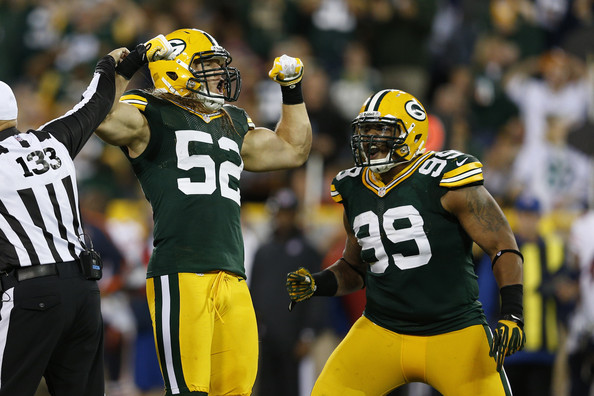Why "Soft" is Silly
 There's no doubt Bob McGinn of the Milwaukee Journal Sentinel is the king of the Packer beat writers. He's the most experienced. He's a great writer. And unlike some people (ahem, Vic Ketchman), he isn't actually employed by the Green Bay Packers.
There's no doubt Bob McGinn of the Milwaukee Journal Sentinel is the king of the Packer beat writers. He's the most experienced. He's a great writer. And unlike some people (ahem, Vic Ketchman), he isn't actually employed by the Green Bay Packers.
But despite his experience and writing skills, McGinn falls short in his end-of-season analysis. In a recent article for the Journal, McGinn concludes that Green Bay is unable to win at a high level is because they're soft.
McGinn makes this case based on a variety of factors, including a rushing advantage in the 2010 playoffs (the last year the Packers weren't soft, he argues), and two questionable personnel moves, namely refusing to re-sign Scott Wells and bringing in Jeff Saturday and selecting Jerel Worthy over Devon Still in this year's NFL Draft. McGinn also takes issue with the Packers' preference for corners that border on the small side, pointing out that Tramon Williams, Sam Shields, and Casey Hayward all approach the 5'10" line of demarcation at which point players are magically "too small" to be effective NFL players.
Now, all these points are legitimate criticisms, but linking them to softness and citing them as the reason for the Packers' apparent decline seems a bit wrong headed for a number of reasons. First, the designation of "soft" is very much a subjective term. Aside from McGinn's linking it to personnel moves, he traces the source this alleged scourge to a number of speciously reasoned roots, including Charles Woodson being old, the training facilities being too nice, Mike McCarthy giving veterans time off from practice, and quiet home crowds at Lambeau Field. It's reasonable to assume that at this point he took a break from writing his article and went outside to yell at some neighborhood kids, encouraging them to remove themselves from his lawn.
In addition, throwing out the word "soft" shifts the blame to a nebulous adjective and away from what may be the more frightening reality: the Packers just might not be very good. Could it be that instead of a team lacking in the hard-nosed qualities McGinn so desires, 1265 Lombardi Avenue is instead occupied by a bunch of guys that simply aren't very talented? It merits consideration, and it's a heck of a lot easier to evaluate than a given player's supposed desire to tackle with the ferocity that makes the old guard of football writers tear up in the press box.
Also, using soft as a descriptor is a convenient way of criticizing without offering real solutions. How, exactly does someone fix soft? The personnel moves are one thing, but does McGinn really think the Packers should strip out the amenities in the training facilities? Should they encourage the fans to drink more beer so they yell louder? How would one implement this culture change? Calling a team soft may be accurate, but it's not the kind of criticism that leads to any sort of improvement. What's more, it's nearly impossible to track a team's "softness" from year to year. Apparently (at least by McGinn's reasoning), the Packers were soft in 2009, then not soft in 2010, then soft again from 2011 through 2012. Is winning or losing the only measure of softness?
The Packers may indeed be soft, but it's difficult to prove it, especially based on the reasoning McGinn gives. Might Jeff Saturday and Jerel Worthy be soft? Sure, but the also just might be old and small, respectively. Might Devon Still have been a better choice than Worthy? It's possible, but combing through the draft history page on NFL.com rarely fails to lead to the conclusion that your favorite team should have picked someone else. (For the record, every team in the league passed on Devon Still at least once. As a rookie, he appeared in just eight games (starting none) and recorded just half a sack, despite being billed as one of the most "NFL ready linemen" in the draft.) Saying they should have picked someone else is akin to suggesting the Lincolns should have gone to the theater a different night. It may be obviously true, but doesn't help anyone.
Ultimately, calling a team "soft" may be the pinnacle of unproductive analysis. Whether or not it's true quickly becomes irrelevant when you realize that the "soft" designation is nothing more than an unsubstantiated opinion based on hindsight and perceived attitude of a player. It's an un-fixable and un-trackable problem, but maybe that's just a soft guy talking.